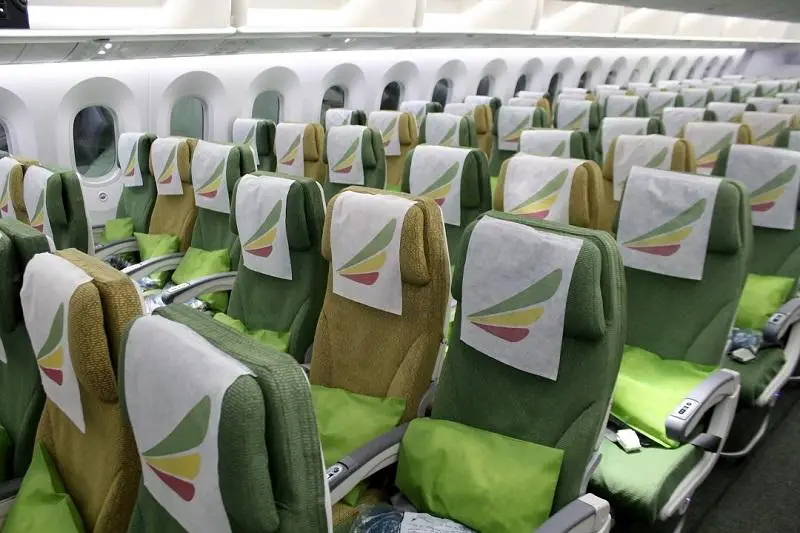- Airlines across Africa are expected to fly into a combined $500 million loss this year. The loss is, however, an improvement from the combined $800 million loss suffered in 2022.
- African airlines have to navigate several economic, infrastructure, and connectivity challenges.
- Data shows Egypt, Morocco, and Ethiopia carriers have seen an increase in traveler numbers in March 2023.
African airlines are expected to fly into a combined $500 million loss this year. The projected loss is, however, a significant improvement from the $800 million combined loss sustained last year.
According to the International Air Transport Association (IATA), Africa remains a difficult market for airlines.
African Airlines smarting from pandemic
Companies have to navigate several economic, infrastructure, and connectivity challenges. These hurdles continue to significantly impact the industry, which is still smarting from the Covid-19 economic fallout.
Last year was a rough period for African airlines in the skies. The net loss for Kenya Airways’ (KQ) more than doubled to a record $290.62 million. “We have a journey to walk to 2024, but green shoots of change have started to show,” said KQ chief executive Allan Kilavuka signaling a possible return to profits.
In Tanzania, players in the industry are advocating for a better business environment. “We are unsettled. VAT on leased aircraft is a threat to the aviation sector. It will make us more expensive than our peers on the continent who have an exemption,” Tanzania Air Operators Association executive Lathifa Skyes warned.
On June 3rd, Tanzania acquired the country’s first ever cargo aircraft as authorities seek to diversify the flag carrier’s revenue streams.
According to Centre for Aviation (CAPA), African airlines are building back capacity, setting the stage for better performance.
Travelers handled by African airlines
Already, the African Airlines Association (AFRAA) traffic statistics show that travelers handled by African airlines for March 2023 hit 94.8 percent or pre-pandemic (March 2019) levels.
Read also: Air Tanzania acquires third Boeing Dreamliner
Further, two of Africa’s biggest markets are showing significant growth. Bookings to and from Egypt were over 200,000 per week better in March this year than recorded in March 2019. What’s more, international capacity to and from Ethiopia, home to Ethiopian Airlines, edged up by 20 percent in March 2023.
In his industry address, IATA Director-General, Willie Walsh, also drew attention to South Africa where the country’s main airports want to raise charges by 38 per cent and its air navigation service wants to hike air traffic control fees by 63 per cent.
According to CAPA, capacity in South Africa’s airline industry is still down by over 100,000 seats every week as of March this year. The country’s aviation sector suffered a big blow when four airlines, South African Express, Mango, Comair along with its Kulula.com unit did not take to the skies after the pandemic.
Nonetheless, despite these challenges, IATA said there remains robust demand for air travel in Africa. Overall, the association is projecting toward industry profitability.
Already, data shows Egypt, Morocco, and Ethiopia carriers have seen an increase in traveler numbers in March 2023 compared to March 2019. However, airlines in South Africa, Kenya, Algeria, and Mauritius are yet to hit their 2019 level.
Intra-Africa airline travel rising
“Africa has a solid foundation to support the case for improving aviation’s contribution to its development. Pre-Covid, aviation supported 7.7 million jobs and $63 billion in economic activity in Africa. Projections are for demand to triple over the next two decades,” IATA said in April 2023 update.
Read also: Kenya Airways, South African Airways sign codeshare deal ahead of formation of pan-african airline
On a positive note, international travel within and to and from Africa is performing better than average since around late 2020, CAPA data shows.
As of March 2023, Africa’s largest hubs–Johannesburg, Nairobi, Addis Ababa, Casablanca, Abidjan, Lomé, Lusaka, and Cairo–were either at par or bettering their pre-pandemic levels on intra-Africa travel.
At least seven African airlines are currently operating larger international networks than they were before the onset of the COVID-19 pandemic
Some of the macro challenges facing the industry include inflation, even as central banks tighten interest rate measures to help tackle the rising cost of living. IATA projects that an end to interest rate hikes could stimulate demand for travel.
“Equally, the risk of recession remains. Should recession lead to job losses, the industry’s outlook could shift negatively,” IATA explained.
Further, broader geopolitical tensions especially emanating from Russia-Ukraine war are negatively impacting global trade and any escalation of such tensions represents a downside risk to the airline industry globally.
Aircraft parts supply chain ruptures
Equally, supply chain issues continue to impact global trade and business. And the airline industry in Africa has not been spared. IATA said airlines have been directly impacted by aircraft parts supply chain ruptures.
Increasingly, aircraft and engine manufacturers have failed to sort this out. This is negatively impacting the delivery of new aircraft and the ability of airlines to maintain and deploy existing fleets.
Internationally, the airline industry revenues are expected to hit $803 billion this year. This will be a 9.7 percent jump from the revenues reported in 2022.
State-backed carriers from the Middle East have been slowly taking up significant market in Africa. According to IATA, carriers from the Middle East will realise $2 billion net profit this year, a 20.8 per cent increase from $1.4 billion reported in 2022.
Read also: Kenya Airways remains in the red as loss hits historic $290.8 million
Across the world, “Middle East carriers have been swiftly rebuilding their international networks and in March 2023, the region’s international connectivity had returned to 98 percent of its pre-Covid level,” IATA noted.
A full recovery of African airlines to pre-pandemic levels for passenger traffic is expected next year. However, economies will continue sustaining body blows given the continent’s internal market remains fairly constrained.
